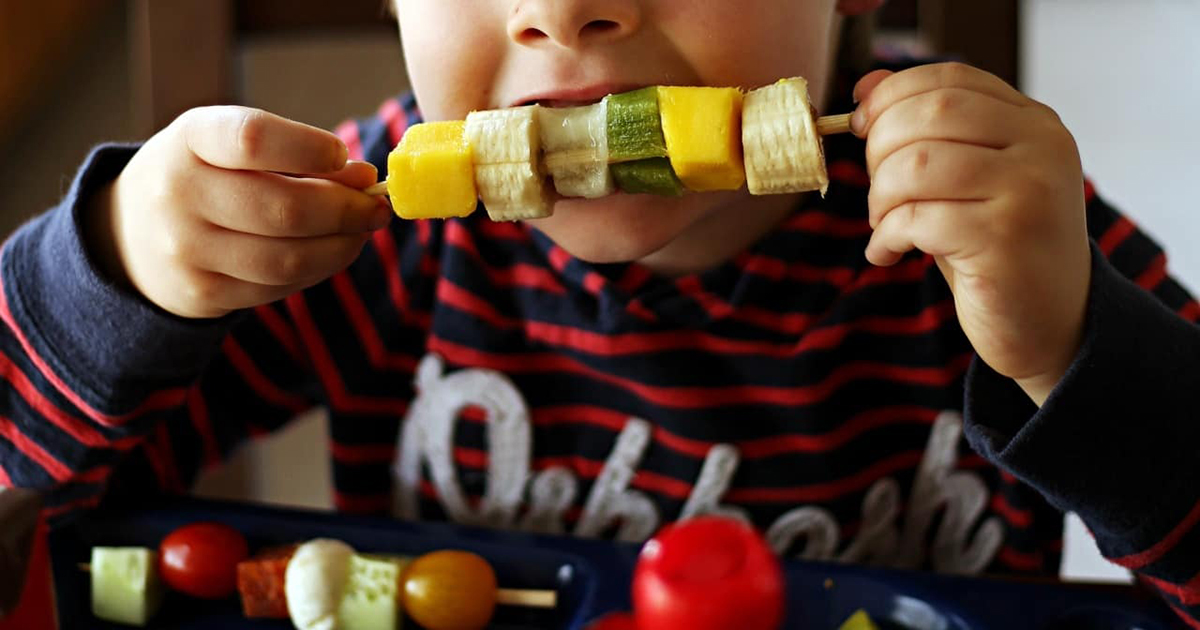Surprising Ways To Get Children To Eat Healthy (And Enjoy It!)
Picky eaters can come at any age, but children are perhaps the group with the most significant concentration of picky eaters. This can be for many reasons, such as being nervous to try new food, disliking the color of something, or maybe just being stubborn, but what it amounts to every time are frustrated parents trying to make sure their children eat healthily and grow up strong. Does this sound like your life? The good news is, there are many surprising ways you can easily get your children to eat healthy.
Don’t Use Your Own Tastes

Chances are you will want to feed your children what you like to eat as well. But if they continuously refuse to eat what’s on the plate, consider changing up the game. Their tastes may just be different from yours! Maybe you love bananas, but your child does not. Try giving them some apple or grapes instead. They are still eating healthy fruit! This applies to just about any food, such as carrots instead of broccoli or spinach instead of kale. Expanding your thinking of food and avoiding your tastes may just open up a new world of healthy food for your children. Speaking of expanding your thinking, it’s time to do the unexpected when it comes to healthy food.
Use Typical Foods In Different Meals

Many of us are trained to believe certain foods are only appropriate for certain meals, such as only eating scrambled eggs for breakfast or kebabs for dinner. Breaking out of this shell can work wonders when trying to get kids to eat healthily. You can make scrambled egg sandwiches for lunch or even dinner. You may even be able to sneak in vegetables, a little cheese, or other healthy additions to create a balanced meal. Kebabs can also be the perfect breakfast for kids since many love to eat food on a stick. Experiment by making one out of fruit! You can make one with ham and pineapple as well, or any other healthy combination. Just use popsicle sticks instead of the traditionally pointy kebab sticks.
Serve Food In Unexpected Ways

Cook and serve food in unexpected ways to tempt children into eating something they might have previously refused. Kebabs, mentioned earlier, are a great way to get children to eat fruits and vegetables. Also try roasting vegetables like broccoli and cauliflower instead of steaming, or cooking carrots instead of serving them raw. Texture can play a significant role in what children want or do not want to eat, so changing things up in simple ways can make a huge difference.
You can even apply shapes to this idea. For instance, try cutting their sandwiches into animals, or carving vegetables or fruit, et cetera. This unexpectedness adds a lot of interest to food, and if kids show interest in it they are more likely to eat it!
Get Kids Involved From Start To Finish

Speaking of interest, getting your children involved in the cooking process from start to finish is a fun way to improve the chances they will eat healthily. Take them with you to the grocery store and have them pick a few things (within reason, of course). When you are cooking dinner, try giving them a simple task if they are old enough, ask them questions about the food, or anything else to get them involved in cooking the meal. Having your children choose some of the food increases the likelihood they will eat it, since they have either had it before and enjoyed it, or have some interest in trying it (e.g., it might be a fun color).
Introduce New Foods At A Staggered Pace

Putting a meal in front of your children filled with food they have not tried is a risky choice, as many children who are picky eaters are often afraid to try anything new. Instead, introduce new food slowly and staggered (one at a time). This helps children get used to something before adding another new food onto their plate. For instance, try introducing one new fruit or vegetable every few weeks for a little while. As your children get used to trying new things, you can shorten the intervals between new food. They will be eating a wide variety of healthy food before you know it!
Make Time For Occasional Treats

The vast majority of individuals, including adults, do not have the perfect diet. Everyone occasionally indulges, though their chosen indulgences do change based on personal taste. A similar concept is a great way to help ensure your children eat healthy food. You can incorporate the occasional dessert, have a treat during the annual family vacation, have popcorn at the movies, or go out for ice cream every so often, et cetera. Occasional treats are healthy. There is a reason why the most sustainable diets include the advisement for indulging in moderation! Besides, offering the occasional treat to your children can help reduce their frustration or unwillingness to try new or healthy food if they know they will get what they want from time to time.
Use Substitutes In Baking

Did you know even indulgences like baked goods can be healthy? Or, at least, healthier for you than you might think. You just have to find substitutes you can use in your favorite recipes. Thisisa greatalternative to ensuring your children are eating healthy while still indulging.Applesauce, for example, acts as a substitute for eggs, oil, or butter. You can also use flaxseed and water for eggs, avocados for butter, or blacks beans for flour, among many other options.
While you might need to adjust based on the specific recipe, a helpful guide is one cup of pureed black beans per cup of flour, one cup of pureed avocado per cup of butter, one tablespoon of flaxseed and three tablespoons water per egg, and a one to one ratio for applesauce replacing oil.
Have Small Snacks More Often

Did you know people are not meant to eat only three big meals a day? In fact, we are suited to eating more frequently throughout the day, but in smaller portions instead. Try applying this to your children and having small healthy snacks more frequently (e.g., every three hours as a starting point). This helps maintain their energy levels and prevents them from getting too hungry. If children get too hungry, they are likely going to be quite cranky as well, which will dramatically lessen your chances at getting them to eat new food, especially foods they might not be fond of.
